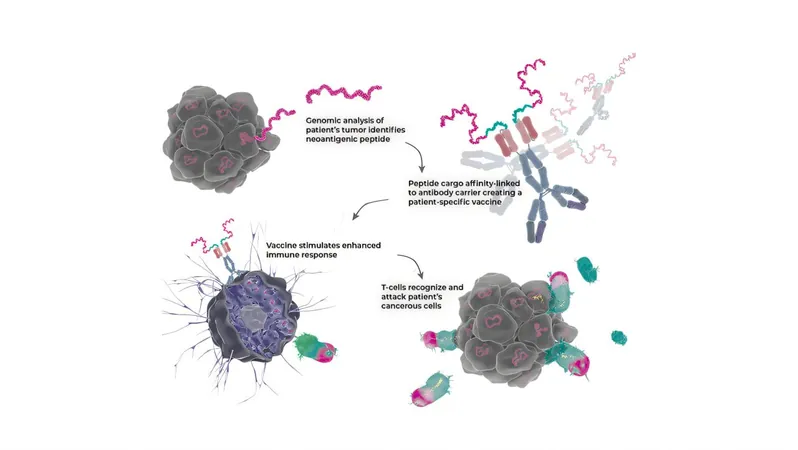
Revolutionary Antibody Holds Promise for Targeting Multiple Cancer Types!
2024-11-11
Author: John Tan
Introduction
In an exciting breakthrough, researchers from Uppsala University and KTH Royal Institute of Technology have unveiled a groundbreaking form of precision medicine—an innovative antibody that may pave the way for treating various cancers more effectively. This pioneering research, published in the esteemed journal Nature Communications, combines three unique functions within the antibody, which significantly enhance T-cell activity against tumor cells.
Research Leadership
Leading this remarkable study, Professor Sara Mangsbo from Uppsala University and Professor Johan Rockberg from KTH Royal Institute of Technology have been dedicated to advancing precision medicine for nearly 15 years. Their relentless efforts have focused on utilizing antibodies to interact with a crucial immune system protein known as CD40. “We are thrilled to announce that our new antibody technology operates as a precision medicine for cancer,” Mangsbo states.
Unique Mechanism of Action
What sets this new antibody apart is its ability to precisely direct the immune system towards specific genetic mutations found exclusively in cancer cells, termed neoantigens. By delivering targeted, tumor-specific information to specialized immune cells and simultaneously stimulating them, this innovative method has the potential to dramatically amplify T-cell responses to tumors.
Promising Results
The results of this study are promising. Not only does the method activate the appropriate immune cells in human blood samples, but animal models demonstrate that mice treated with the new antibody experienced extended survival rates. In fact, at higher doses, some mice were entirely cured of cancer, and the treatment proved safer than previously investigated cancer therapies.
Efficiency and Scalability
While customized precision medicines often come with high costs and lengthy development timelines, this new approach is designed for efficiency. “The beauty of our drug lies in its scalability and the speed at which it can be tailored to a patient's specific cancer type,” Professor Rockberg explains. This antibody consists of two main components: a bispecific targeting antibody that can be produced in large quantities and a rapidly synthesized custom peptide part designed for the particular cancer type. This streamlined production could drastically reduce the time it takes for patients to receive treatment after diagnosis.
Future Outlook
The overarching goal of this groundbreaking study is to create a more flexible, rapid, and safe cancer treatment option that surpasses current methodologies. The researchers believe that this approach has the potential to be personalized for each patient, fortifying their immune response against cancer. As they prepare for the next steps—optimizing production for safety studies and initiating human clinical trials—hope flourishes for a future where cancer treatment becomes not only more accessible but also more effective.
Conclusion
With this promising advancement in cancer therapy, the question now looms: will this antibody revolutionize how we understand and combat cancer? Stay tuned for updates as researchers embark on the journey to bring this pioneering treatment to patients!


 Brasil (PT)
Brasil (PT)
 Canada (EN)
Canada (EN)
 Chile (ES)
Chile (ES)
 España (ES)
España (ES)
 France (FR)
France (FR)
 Hong Kong (EN)
Hong Kong (EN)
 Italia (IT)
Italia (IT)
 日本 (JA)
日本 (JA)
 Magyarország (HU)
Magyarország (HU)
 Norge (NO)
Norge (NO)
 Polska (PL)
Polska (PL)
 Schweiz (DE)
Schweiz (DE)
 Singapore (EN)
Singapore (EN)
 Sverige (SV)
Sverige (SV)
 Suomi (FI)
Suomi (FI)
 Türkiye (TR)
Türkiye (TR)